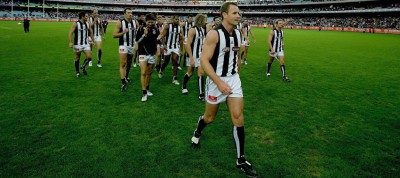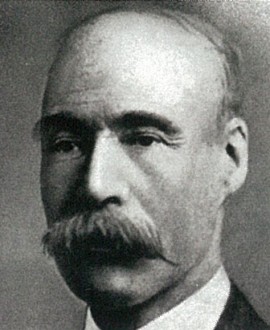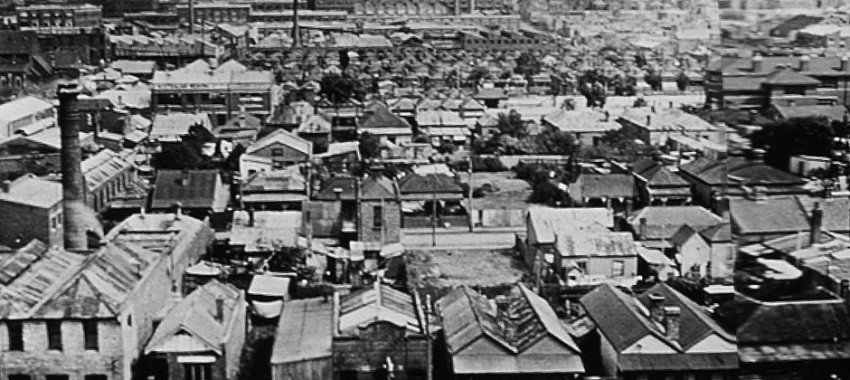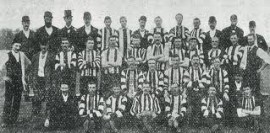Alf Toll holds an important place in Collingwood history, as the player who kicked our first ever goal in an elite level match. But for many years he was denied that honour through some mixed media reporting.
The problem came when The Sportsman newspaper reported that it had been a “proud foot’ which kicked Collingwood’s first goal in our first ever game against Carlton on 7 May 1892. That was then picked up and repeated in the club’s first official history book in 1950, perpetuating the idea that it had been Bill Proudfoot who first kicked a six-pointer for the Magpies.
But later research confirmed that almost every other source from that first game reported that the historic first goal (and indeed the less historic first behind too, from a “good distance kick”) came from the boot of Alf Toll.
Hopefully Alf got greater recognition for his big moment at the time, because he wasn’t around long to enjoy it, dying less than a decade later.
Alf Toll had been a leading player with Preston in the late 1880s and early 1890s before joining the new club Collingwood for its debut season in 1892. He played in that historic first game, named at full-forward, and his – and the club’s – big moment came in the second quarter.
“On changing ends Langford and Allan did some rattling work in the ruck, and there was loud cheering whenToll kicked the first goal for Collingwood,” reported The Argus. The Age was even more prosaic: “Allan to Langford, Bartlett to Allan contributed strategic play that was highly appreciated, then, after a tussle, Langford, from the ruck, despatched to Allan, who speedily letToll have it and a goal followed.”
Alf was named among the best players that day, and besides his one goal and two behinds registered several other shots on goal too. All of which makes it strange that he rarely played full-forward again after that. Instead he was tried on the half-back flank, in the back pocket, at centre half-forward, on the ball and on a half-forward flank (where he probably spent most time). He played 15 games in total that year but kicked only one more goal beyond his famous first.
The selectors obviously didn’t mind throwing him around the ground, and they also dropped him a couple of times, which seems to have annoyed one journalist from The Evening Standard who felt he was being hard done by. “Toll, another young player who is good enough for most teams, has also met with the adverse decision of the Match Committee, although he has played brilliant games. He is now left out for the second time, and it is to be hoped the committee will in future matches select the best twenty.”
It seems that Alf didn’t like his treatment much either. At the end of 1892 he was back at Preston, listed among that team's best in a series of challenge matches against Heidelberg for a cup donated by a local member of Parliament. In 1893 he went to Drouin where he became a farmer and captained the local footy team, playing alongside one of his brothers, two of whom were also talented footballers. He had one more shot at the big time, playing a single game for Melbourne early in 1894 before returning to the farm at Drouin.
He then largely disappeared from the scene, until news filtered through early in 1901 that Alf had died at his home in Northcote of pneumonia and cardiac failure after having been sick for 10 days (he ended up dying on the same day as Queen Victoria!). He was just 27. To compound matters for his grieving family, his five year old daughter would die just over a year later.
Less than a decade earlier he had been the toast of Collingwood after kicking the first goal in the club’s history. And despite his tragically early demise, that’s something nobody could ever take away from him.
- Michael Roberts





